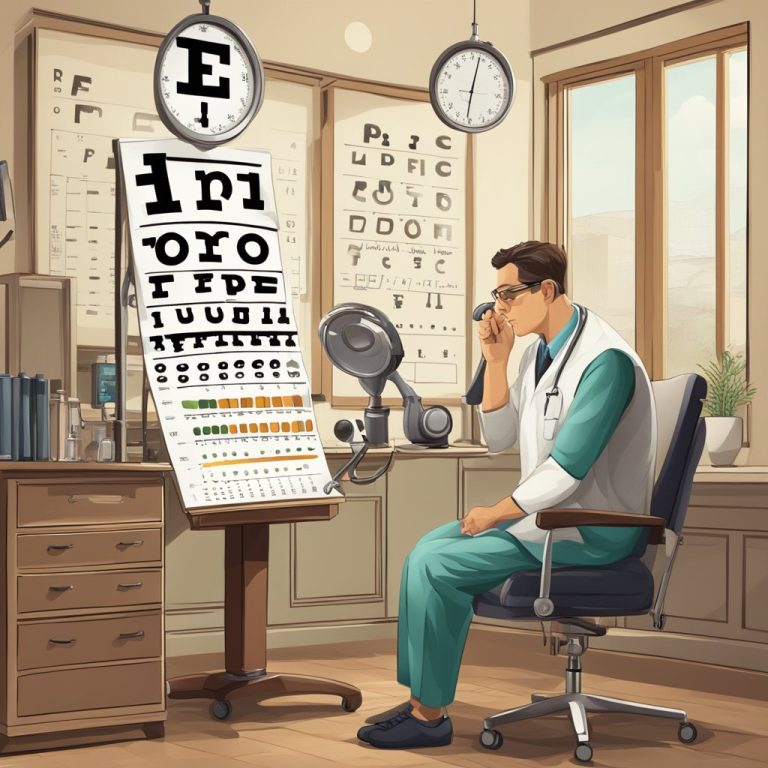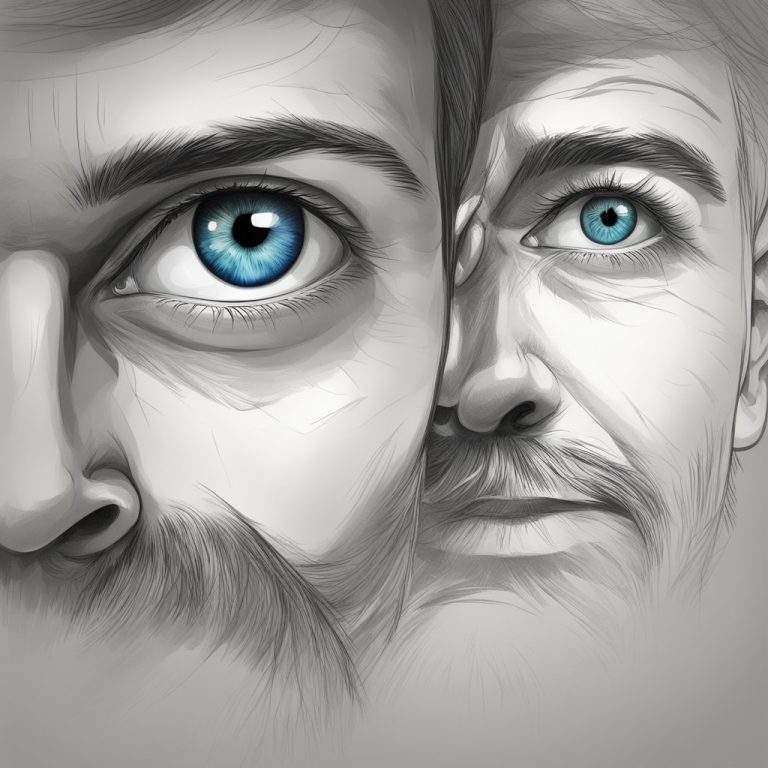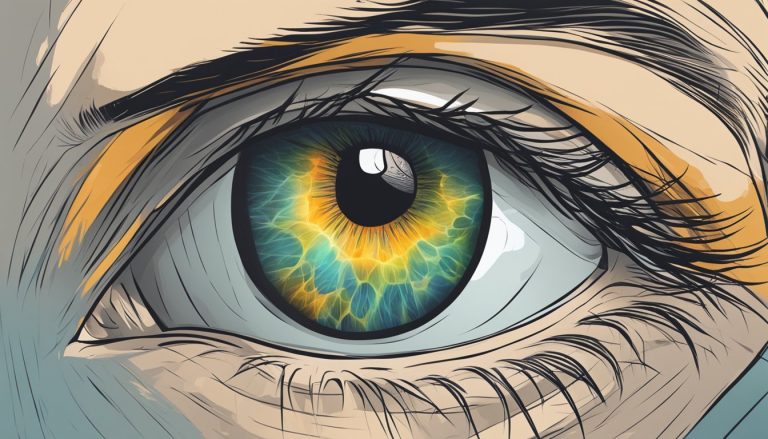Why Do My Eyes Sting When I Cry
Why Do My Eyes Sting When I Cry? The Straight Scoop

The Science of Tears and Eye Irritation
When you cry, your eyes produce tears to help lubricate and protect the eyes. Tears also help to flush out irritants that may have entered the eyes. However, sometimes the tears themselves can cause eye irritation and stinging.
Tears are made up of three layers: the lipid (oil) layer, the aqueous (water) layer, and the mucin (mucus) layer. The lipid layer helps to prevent evaporation of the tears, while the aqueous layer contains water, electrolytes, and proteins. The mucin layer helps to spread the tears evenly over the surface of the eye.
When you cry, your tear glands produce more tears than usual, which can cause the eyes to become watery. The increased volume of tears can also cause the eyes to become irritated and stinging. The tears may also contain more salt than usual, which can further irritate the eyes.
In addition to the increased volume of tears, the act of crying itself can cause the eyes to become irritated. Crying can cause the blood vessels in the eyes to dilate, which can lead to redness and soreness. The act of crying can also cause the muscles around the eyes to contract, which can further irritate the eyes.
Common Causes of Eye Stinging During Crying
When you cry, it is normal to experience eye stinging. The sensation can range from mild to severe, and it can be caused by various factors. Here are some common causes of eye stinging during crying.
Tear Composition and Eye Stinging
Tears are a combination of water, mucus, and oil that help keep your eyes lubricated and healthy. When you cry, your tears become more concentrated, which can cause eye stinging. The salt in your tears can also irritate your eyes, making them sting even more.
Emotional Crying vs. Reflex Tears
There are two types of tears: emotional tears and reflex tears. Emotional tears are produced when you are sad, happy, or overwhelmed with emotion. Reflex tears, on the other hand, are produced to protect your eyes from irritants such as smoke, dust, or onion fumes.
Emotional tears contain more protein than reflex tears, which can make them thicker and more likely to cause eye stinging. Reflex tears, on the other hand, contain more water, which can help dilute the irritants and reduce eye stinging.
Environmental Factors
Environmental factors such as wind, smoke, and pollution can also cause eye stinging during crying. These irritants can cause your eyes to produce more tears, which can make them sting even more. If you are exposed to these irritants frequently, you may want to consider wearing protective eyewear or using eye drops to help reduce eye stinging.
Health Conditions Related to Eye Stinging
When your eyes sting while crying, it could be a sign of an underlying health condition. Here are some of the most common eye conditions that can cause stinging:
Dry Eye Syndrome
Dry eye syndrome occurs when your eyes don’t produce enough tears or when the tears evaporate too quickly. This can cause your eyes to feel dry, itchy, and irritated. In some cases, dry eye syndrome can also cause your eyes to sting when you cry. According to Cleveland Clinic, dry eye syndrome can be caused by a variety of factors, including aging, certain medications, and certain medical conditions.
Conjunctivitis
Conjunctivitis, also known as pink eye, is an inflammation of the conjunctiva, which is the clear membrane that covers the white part of your eye and the inside of your eyelids. Conjunctivitis can cause your eyes to become red, watery, and itchy. In some cases, it can also cause your eyes to sting when you cry. According to American Academy of Ophthalmology, conjunctivitis can be caused by a bacterial or viral infection, allergies, or exposure to irritants.
Blepharitis
Blepharitis is an inflammation of the eyelids, which can cause redness, swelling, and itching. It can also cause your eyes to feel dry and gritty, and in some cases, it can cause your eyes to sting when you cry. According to Anaheim Eye Medical Group, blepharitis can be caused by a bacterial infection, a skin condition, or a problem with the oil glands in your eyelids.
Prevention and Remedies for Eye Stinging
If you are experiencing eye stinging when you cry, there are some things you can do to prevent and alleviate the discomfort. Here are some tips:
Proper Eye Care
Proper eye care is essential to prevent eye stinging when you cry. Make sure to keep your eyes clean and avoid touching them with dirty hands. If you wear contact lenses, make sure to clean and disinfect them regularly. Also, avoid wearing contact lenses for extended periods as it can cause dryness and irritation.
Over-the-Counter Solutions
Over-the-counter eye drops can help alleviate eye stinging caused by dryness or irritation. Look for eye drops that are specifically designed for dry eyes or allergies. These eye drops can help moisturize your eyes and reduce inflammation. However, make sure to follow the instructions carefully and avoid overusing them, as it can cause further irritation.
When to See a Doctor
If your eye stinging persists or is accompanied by other symptoms such as redness, swelling, or discharge, it may be a sign of an underlying condition. In such cases, it is important to see a doctor as soon as possible. Some conditions that can cause eye stinging include conjunctivitis, blepharitis, and corneal abrasion. Your doctor can diagnose the underlying cause and recommend appropriate treatment.
Psychological Aspects of Crying
Crying is a natural emotional response to various stimuli. It can be triggered by a range of emotions, including sadness, joy, fear, and frustration. The act of crying is often associated with the release of pent-up emotions and can be a cathartic experience.
Psychologically, crying can be an important tool for self-expression and stress relief. It allows you to communicate your emotions and can help you feel better after a stressful or emotional event. Crying can also be a way to cope with grief and loss.
However, not everyone feels comfortable crying in front of others. Some people may feel embarrassed or ashamed of their tears, which can lead to them suppressing their emotions. This can be detrimental to mental health, as it can lead to feelings of isolation and loneliness.
It is also worth noting that crying can have different effects on different people. Some people may feel better after crying, while others may feel worse. This can depend on a range of factors, including the individual’s personality, the situation they are in, and the reason for their tears.
Frequently Asked Questions
What causes a stinging sensation in the eyes during crying?
When you cry, your tear glands produce more tears than usual, causing your eyes to become watery. The excess tears can lead to eye irritation, which can result in a stinging or burning sensation. This is a normal and temporary reaction to emotional distress, and it usually goes away on its own.
Can crying excessively lead to a burning feeling in the eyes?
Yes, excessive crying can cause a burning feeling in the eyes. When you cry excessively, your tear glands produce more tears, which can lead to eye irritation and discomfort. If you frequently experience a burning feeling in your eyes during or after crying, it may be a sign of an underlying eye condition, such as blepharitis or dry eye syndrome.
Is there a connection between eye pain and emotional tears?
Yes, there is a connection between emotional tears and eye pain. Emotional tears contain more protein-based hormones than reflex tears, which are produced to protect the eyes from irritants. These hormones can cause eye pain and irritation, especially if you cry frequently or for prolonged periods.
Why might tears feel acidic or burning?
Tears may feel acidic or burning due to a high concentration of salt or other irritants. This can happen when you cry frequently or have an underlying eye condition, such as dry eye syndrome or blepharitis. If you frequently experience acidic or burning tears, it is best to consult an eye doctor.
How can one alleviate eye discomfort after crying?
To alleviate eye discomfort after crying, you can try using a warm compress on your eyes or applying artificial tears. You can also take a break from any activities that may exacerbate your eye discomfort, such as reading or using a computer. If your eye discomfort persists or worsens, it is best to consult an eye doctor.
Does the burning of eyes while yawning indicate an underlying issue?
No, the burning of eyes while yawning is a normal and common occurrence. When you yawn, your tear glands produce more tears. This can lead to eye irritation and discomfort. However, this is a temporary reaction and does not indicate an underlying issue.






